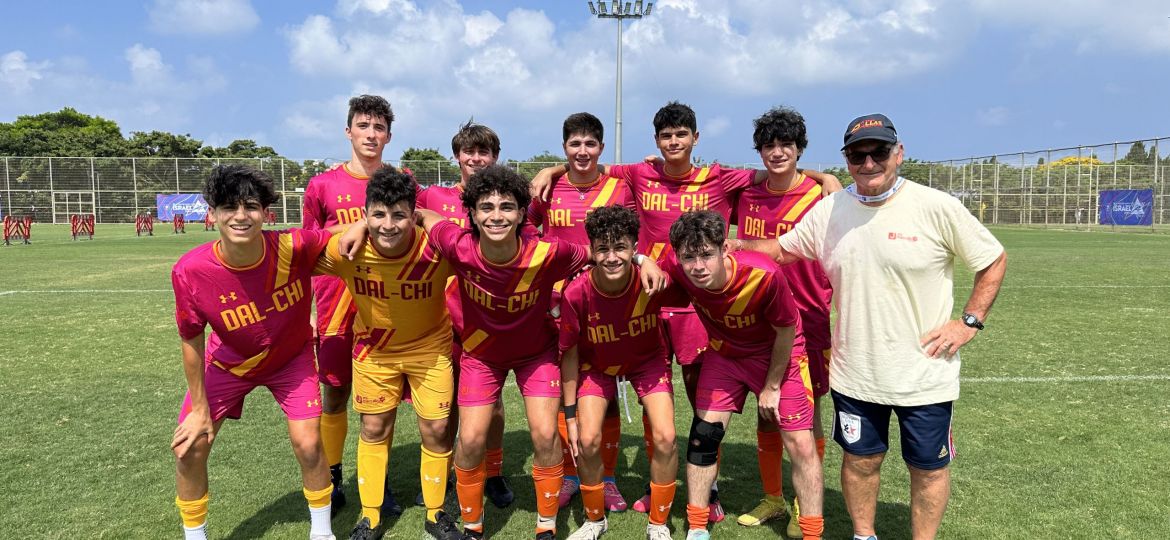
Written by Elie Gelman
On a sunny afternoon in Dallas, Alan Sandler stands at the center of a soccer field watching a group of U16 girls run through drills. He’s waiting for the right moment to offer a word of encouragement or a gentle correction. For Sandler, coaching is not about yelling but more about nurturing, a philosophy shaped by decades on the field and a family legacy that spans across generations.
Sandler’s journey to this field began in Johannesburg, South Africa, where he grew up with his father, Dave Sandler, and uncle, Saul Sandler, both legendary athletes in their own right.
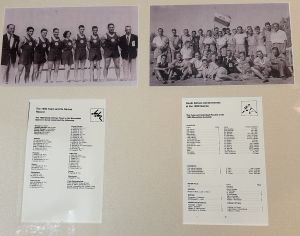
“My father was the South African 100-yard champion for track and field in 1951, and he and his brother were the only two Jewish brothers ever to run on the same South African team,” Sandler said. Both of them competed at the Maccabiah, with his uncle winning gold in the 400 and 800 yards and his father earning gold and silver in sprints, including being the fastest Jewish man in the world in 1953.
Growing up, Alan would accompany his father to practices and watch as people approached his dad for autographs and to hear his stories.
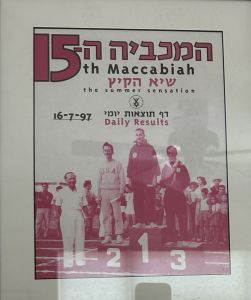
“He never refused them,” Sandler said. “He was very humble in his accomplishments. He always told me that no matter how hard you try matter how hard you try, you’ve just got to keep on trying harder and always be respectful of your opponents. Be a good winner but a gracious loser.”
These lessons became the basis of Alan’s own coaching philosophy.
Sandler’s approach is based on the belief that sports are about more than winning. “I always want to win, but I’ve always taught my players that losing is not the end of the world,” he said. “You learn lessons from playing a sport, a team sport. The value of being a good team player is embracing your whole team, because not everybody’s on the same level. Sometimes losing teaches a team, a coach, and players a good lesson—that there’s always somebody better, and now you have to strive to get to that next level together.”
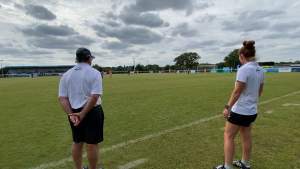
He’s especially focused on team dynamics, looking for players who lift each other up. “ Character starts with the coach. I’m not a yeller. I don’t scream at the kids because it doesn’t help. When they make a mistake, let them play on, and then when they come off, explain what they could have done better. I’ve had responses from both parents and players that they prefer that way of being taught.”
The Maccabiah, often called the “Jewish Olympics,” is more than just a tournament; it’s a chance for young Jewish athletes from around the world to connect with their heritage and each other. For many of his players, it will be their first visit to Israel, and Sandler is aware of the impact this can have.
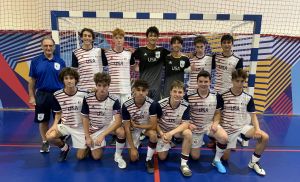
“I think when they get to Israel, it really shows. It makes them feel proud. I hope I can get that across to the kids, because I’ve got kids from all different backgrounds. Going to Israel will open up their eyes and make them feel proud to be Jewish and connect to other Jewish kids as well.”
Elie Gelman is a Broadcast & Digital Journalism major at Syracuse University’s S.I. Newhouse School of Public Communications. Email Elie at elieigelman@gmail.com and connect with Elie on Linkedin.
